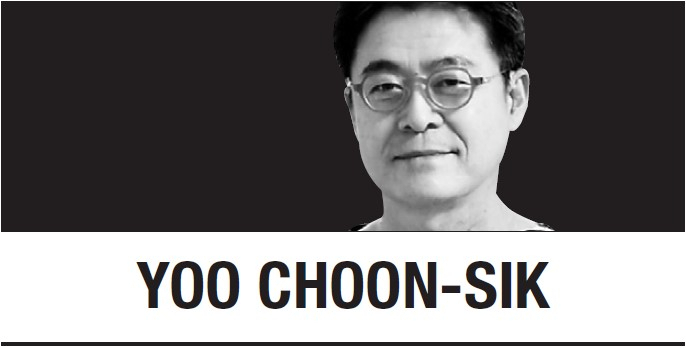
President Yoon Suk Yeol promised to do his best to control consumer prices as he resumed activities to interact directly with the public on Friday for the first time after the ruling party’s crushing defeat in the early April parliamentary election. The government also announced fresh measures to help counter the surging cost of living, led by rising food prices.
This came a day after Yoon apologized for failing to solve the issues people face during his first news conference in nearly two years, promising that he would do more to address issues related to people’s living conditions. It is a welcome, albeit belated, reaction from Yoon and the government, given that the cost of living has not been falling as much as the headline inflation rate.
South Korea’s consumer price index rose 3.0 percent on average during the first quarter of this year from a year earlier, easing from a 3.4 percent gain in the preceding quarter and marking the slowest growth since the third quarter of 2021, according to data from Statistics Korea. It is still higher than the central bank’s target of keeping the inflation rate at around 2 percent over the medium term, but it remains on a gradually easing path.
In fact, South Korea’s annual consumer inflation rate has been falling since hitting 5.8 percent in the third quarter of 2022, the highest quarterly reading in more than two decades since late 1998. The central bank has also paused its monetary policy tightening campaign, which lifted its base rate by 300 basis points in less than two years from a record low of 0.50 percent in July 2021.
However, the pace of decline in the headline inflation rate is far from what the general public feels in everyday life because most people are complaining that the cost of living remains elevated or even continues to rise further. According to Statistics Korea data, the consumer price index for living necessities was 3.5 percent higher than the year before in April, far above the headline inflation rate of 2.9 percent for that month.
During the month, food products led the fast growth in the cost of living, with prices of frequently purchased items such as Chinese cabbages, carrots and dried laver rising by double-digit rates year-on-year. Measures that the Ministry of Economy and Finance announced on Friday were also aimed at removing import tariffs on these items.
Yoon also said when he met people at a market in Seoul that the government would mobilize all its capabilities to contain prices of frequently purchased goods until the general public feels the result. He made the comment as a Gallup Korea poll showed on the same day that Yoon's approval rating fell to 24 percent, the lowest among all democratically elected presidents in South Korea in their second year in office.
There are a few very important points to make regarding this situation. First, the government has kept making promises to do its best whenever an issue arises and whichever subject the issue is related to. However, its follow-up measures usually turn out to be a collection of common and conventional policy steps, having only limited effects on the situation.
Second, the government almost always gives the impression that it begins taking action only after certain problems become serious, even when some of these problems are preceded by signs or experts warnings. This attitude is a serious problem because economic players, including consumers and suppliers as well as those providing intermediary services, usually make decisions on their activities based on predictions rather than what has already happened.
For instance, prices of fresh foods such as vegetables are strongly influenced by a handful of widely known factors, including weather conditions and the growing area for specific vegetables. The government must have been able to and should have been prepared for what would happen with the prices of these items, at least to some extent.
Third, the government should not underestimate the hardship the general public is facing from the high prices of living necessities, or vaguely expect the situation to subside over time, because it is happening while people are suffering from high interest rates at the same time. People understand that interest rates were raised to contain high inflation but feel pain when both inflation and interest rates stay at high levels for a long time.
South Korea ranks among the highest in the developed world in household debt burden, and this means people in this country are more sensitive to interest rates than their peers in other countries. According to the annual survey by the Bank of Korea and the Financial Supervisory Service, the average South Korean household carried 66.94 million won ($48,800) of financial debt, which means the 3 percentage-point rise in interest rates since late 2021 required each household to pay an additional 2 million won in interest each year.
It is always welcome to hear that the president and the government are making promises to pay more attention to people’s living conditions and to make more effort to implement measures to help ease the difficulties of everyday life. Now, it is time for them to prove that they follow up on what they promised.
Yoo Choon-sik
Yoo Choon-sik worked as the chief Korea economics correspondent at Reuters and is now a business and media strategy consultant. The views expressed here are the writer’s own. -- Ed.
-
Articles by Korea Herald


![[H.eco Forum] H.eco Forum calls for transition to clean, carbon-free energy](http://res.heraldm.com/phpwas/restmb_idxmake.php?idx=644&simg=/content/image/2024/05/22/20240522050668_0.jpg&u=20240522175145)
![[Exclusive] LACMA admits it needs further research on donated Korean paintings](http://res.heraldm.com/phpwas/restmb_idxmake.php?idx=644&simg=/content/image/2024/05/22/20240522050568_0.jpg&u=20240523001632)

![[Bridge to Africa] Africa-Korea partnership: Why it matters for future](http://res.heraldm.com/phpwas/restmb_idxmake.php?idx=644&simg=/content/image/2024/05/22/20240522050681_0.jpg&u=20240522182351)
![[Herald Interview] Korean adoptees embark on journeys to find roots](http://res.heraldm.com/phpwas/restmb_idxmake.php?idx=644&simg=/content/image/2024/05/22/20240522050754_0.jpg&u=20240522190539)
![[Graphic News] Medical tourists visiting Korea reach record high](http://res.heraldm.com/phpwas/restmb_idxmake.php?idx=644&simg=/content/image/2024/05/21/20240521050794_0.gif&u=20240523171313)











![[Today’s K-pop] NCT127 drops single in Japan to mark anniversary](http://res.heraldm.com/phpwas/restmb_idxmake.php?idx=642&simg=/content/image/2024/05/23/20240523050694_0.jpg&u=20240523175657)